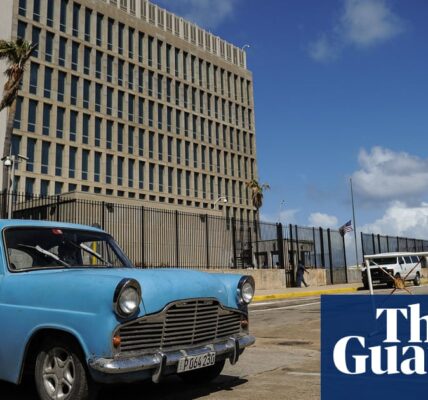The importance of “implementation” in addressing the worldwide battle against the climate emergency.

Why is it that certain developing nations are seemingly hesitant to move away from fossil fuels? The reason lies in the challenges of implementing such a transition, as these countries must also address poverty and provide essential services (including energy) for their citizens.
The issue of “means of implementation” has caused disagreement during the negotiations, as developing nations are calling for developed nations to uphold their legally binding commitments outlined in the Paris agreement. These developing countries, who have had minimal contribution to the climate crisis but are experiencing the harshest consequences, insist that any phase-out plans must prioritize fairness and be swift, adequately resourced, and ongoing.
More affluent nations should take the lead, begin promptly, halt any further growth initiatives, and offer appropriate financial aid instead of loans in order to help other countries achieve similar goals.
What are the statements made by developing countries?
Following the release of the draft for the global stocktake on Monday, South Africa’s Minister of Environment, Barbara Creecy, expressed concern over the lack of support for their just transition implementation plan. Creecy stated that they have only received less than 10% of the necessary support for the plan between now and 2030. She emphasized that for many developing countries, especially in Africa, the issue lies not in ambition but in the means of implementation.
The Brazilian representative stated that without proper resources, it is challenging to accomplish anything. They emphasized the need to address the means before discussing their goals for climate justice. They also highlighted the success of reducing emissions through forest conservation. However, they stressed that this cannot be done alone and called for collective action. The means of implementation must align with their decisions and ambitions.
What is the definition of ‘means of implementation’ and why is it essential?
The structure of the Paris agreement mandates that every nation must establish and execute a nationally determined contribution (NDC) that encompasses strategies for reducing emissions, adapting to climate change, and utilizing resources such as finance, technology transfer, and capacity building. The existing NDCs, spanning from 2021 to 2030, consist of unique climate objectives and plans that are either unconditional or contingent upon international actions.
Why is it necessary for developed nations to assist developing nations like Chad, Nepal, or Barbados in achieving their NDC targets?
The Paris agreement addresses this matter in articles 9, 10, and 11. Article 9 stipulates that developed countries are obligated to provide and mobilize funding, while other countries may choose to do so voluntarily. Article 10 requires the provision of support, including financial assistance, to developing countries for the development and transfer of technology to enhance their resilience to climate change and reduce greenhouse gas emissions. Article 11 focuses on increasing the capacity-building efforts of developing countries, particularly those that are least developed or most vulnerable to the negative impacts of climate change, such as small island nations.
When you listen to groups like the G77 plus China (135 countries) and similar developing countries (20 nations) discussing the enforcement of the Paris agreement, they are usually mentioning the aforementioned responsibilities, which have largely not been fulfilled.
Why are developing nations unable to fund their own transition to renewable energy?
According to the United Nations Framework Convention on Climate Change, developing countries require $5-11 trillion to fulfill their current NDCs (Nationally Determined Contributions) which are set to expire in 2030. However, the funding gap identified by the UN only covers 30% of the total costs. This is one of the reasons why developing countries cannot agree to a complete phase-out of fossil fuels or any new targets without proper means of implementation. They are already struggling to finance their existing plans for mitigation and adaptation, all while facing increasing costs for loss and damage.
This is a significant concern regarding climate justice. Developed nations have played a major role in causing the climate crisis and have also reaped the most benefits from using fossil fuels. On the other hand, developing nations have had a minimal contribution but are facing the most severe consequences, partly due to unequal access to resources for mitigating, adapting, and recovering from climate-related disasters like droughts, floods, wildfires, and extreme heat.
What is the significance of the global stocktake?
The GST, or global stocktake, is a mandatory evaluation that occurs every five years to measure the overall advancement towards the commitments made in the Paris Agreement. The results of this assessment are significant as they will inform the next set of NDCs, which must be submitted by 2025.
According to Article 9.5, wealthier nations are obligated to disclose in advance the public resources that will be accessible to assist less affluent countries in developing their NDCs. However, this requirement has not been fulfilled. The target of $100 billion per year for climate efforts by 2020, proposed by the US at the Cop15 conference in Copenhagen in 2009, has not been met and was essentially arbitrarily chosen.
In the coming year, nations must reach a consensus on a larger, demand-driven yearly funding amount known as the new collective quantified goal (NCQG). Developed countries argue that all significant discussions regarding finances should be delayed until then, whereas developing countries insist that the GST, global goal on adaptation, and just transition program must be supported by the necessary resources as outlined in the Paris Agreement. Otherwise, they will be set up for failure.
According to Meena Raman, an experienced climate policy specialist and veteran of Cop from the Third World Network, the absence of practical measures renders any plans or proposals meaningless.
Source: theguardian.com

